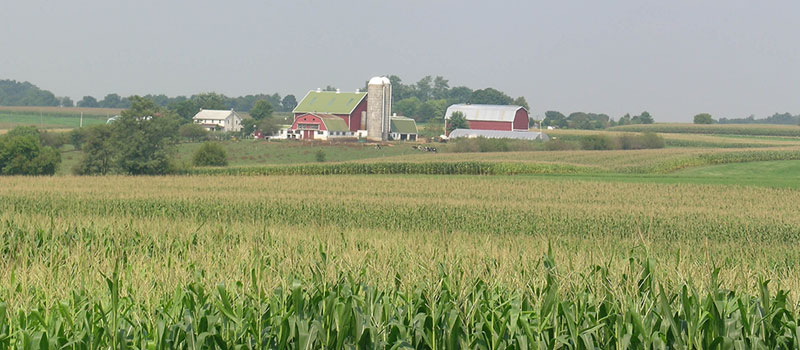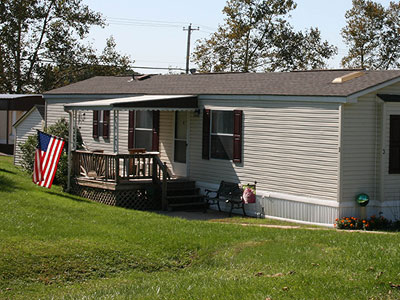Mobile homes have traditionally been an affordable option for farmworker housing.
How it Works
Agriculture has a long history in Chester County and continues to be vital to the County's economy and culture. Chester County ranks second among Pennsylvania's 67 counties in agricultural production, and 53rd out of 3,000 counties in the nation. Additionally, Chester County ranks 18th in the nation for value of agricultural products sold per acre of land in farms. However, Chester County is currently undersupplied in farmworker housing, burdening workers and the agricultural industry. Quality housing is needed to attract and keep farmworkers to support Chester County's agricultural industries to sustain the long-term viability of agricultural operations countywide.
Housing for farmworkers can be provided through a number of mechanisms including government subsidized housing, grower provided or supported housing, or the private market. Due to the moderate wages earned by farmworkers, different forms of housing are can better provide affordable options than the larger single-family or townhomes typical to Chester County. Farmworker housing is often either small unit square footage for farmworkers and their families or dorm style housing for single farmworkers, with both housing styles generally built at higher densities. Farmworker housing supported in any way by growers is subject to the Migrant and Seasonal Agricultural Worker Protection Act (MSPA) regulations.
Municipalities can encourage development of farmworker housing by addressing the need for the use in their planning policies, zoning ordinances, subdivision and land development ordinances, and design guidelines, as well as through education of the public regarding its benefits.
Benefits
Agricultural Support
Ensures vitality of local agricultural businesses by ensuring safe and stable opportunities for their employees.
Affordably-Priced Housing
Farmworker housing provides quality affordably-priced housing for farmworkers.
Housing Near Jobs
The provision of housing in proximity to the farmworkers’ place of employment, minimizes travel costs, time spent commuting, congestion, and emissions.
Fiscal Benefits
Farmworker housing provides tax revenue through property tax, and sales tax generated from resident spending and farm sales.
Mini-homes are an innovative option for providing on-site housing for farmworkers.
Get Started
Housing plan components of comprehensive plans should clearly identify the need for farmworker housing in municipalities with a significant farming presence. Comprehensive plan implementation strategies should identify ordinance revisions required to enable farmworker housing. Regulations within ordinances (such as standards that encourage large lot, single-family subdivisions) can cause housing affordability barriers to farmworker housing. Standards for farmworker housing should be incorporated into the municipal zoning ordinance and permit farmworker housing on-site or off the farm in appropriate locations. If not located on-site, farmworker housing should be integrated into the larger community, with easy access to the agricultural operation.
To support the provision of farmworker housing, municipalities should consider allowing farmworker housing as a by-right principal use or accessory use, when specific area and bulk, density, and other design requirements are met. Municipalities can consider allowing farmworker housing in a variety of forms that can provide lower cost housing options for farmworkers such as:
- Farmworker housing as an accessory use to agricultural land uses
- Accessory dwelling units
- Carriage houses
- Small apartments
- Mini-homes/tiny homes
- Mobile homes
- Mixed use developments
- Stacked town homes
- Co-living
Municipalities should encourage safe connections between housing and agricultural operations by creating trails and bike routes.
Considerations
Changing Farmworker Demographics
While historically most Chester County farmworkers were single, farmworkers are increasingly living with their families. The common dorm style housing previously utilized to house farmworkers may no longer fit worker demand and municipalities may need to revise their zoning regulations to permit farmworker housing better suited for families.
Housing Affordability
The high costs of housing in Chester County Lower combined with the level of wages typically earned in agriculture price many farmworkers out of traditional housing. Funding sources may be available to assist with the development of farmworker housing, including through the USDA. Municipalities can provide additional direct funding support, grant application assistance, and work to decrease the cost of development of farmworker housing in their communities by creating expedited review processes and minimizing fees.
Transportation
Farmworkers often lack access to automobiles and public transportation is unavailable in most rural agricultural areas. Municipalities should encourage transportation options between off-site farmworker housing and agricultural operations such as private carpools and company shuttles.
Federal Regulations
Municipalities can assist growers and landowners in navigating federal regulations including the Seasonal Farm Labor Act to decrease barriers to farmworker housing development caused by the regulations.
Neighborhood Opposition
Municipalities should consider working with community members to determine how to best provide for a range of housing options for residents. Consideration should be given to the development of fact sheets with local examples of farmworker housing to educate the public on the issue.
Utilities
Lack of existing utilities, particularly public sewage facilities, can be prohibitive to farmworker housing development on or near to the agricultural operation due to the expense of infrastructure extensions. Other options, such as smaller community systems, may need to be considered.
Change in Farm Operations or Ownership
Municipalities should consider how to address future changes in farm operations or ownership to ensure structures built as farmworker housing can continue to be used for that purpose. Similarly, the use and status of on-site farmworker housing structures should be considered in the event the farm is no longer in operation.
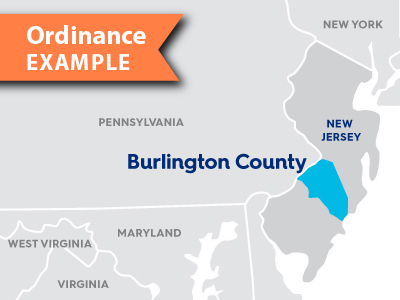
Burlington County, New Jersey created a model farmworker housing ordinance, which provides definitions and ordinance language for both permitted accessory and conditional uses.
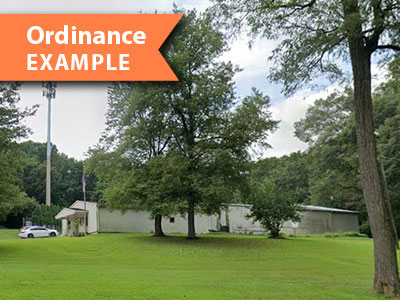
East Fallowfield Township's Zoning Code Section 27-502 permits dwellings for farm employees and their families as a by-right use in the RA Rural Agricultural zoning district, and as a permitted accessory use in the R-1, R-2, and R-3 Residential districts.

Section 240-1904 in the Kennett Township zoning code permits farmworker housing by special exception in the SA Specialized Agricultural and LI Limited Industrial zoning districts. The Specialized Agricultural district specifically accommodates mushroom production and housing for farmworkers.
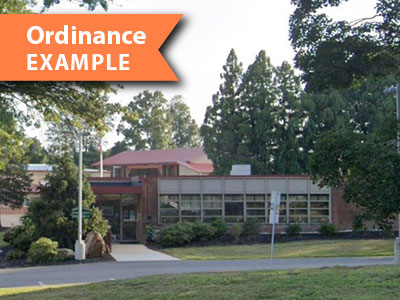
Section 27-303.14B of the London Grove Township zoning ordinance permits agricultural employee housing when accessory to uses permitted in intensive and extensive agricultural operations.
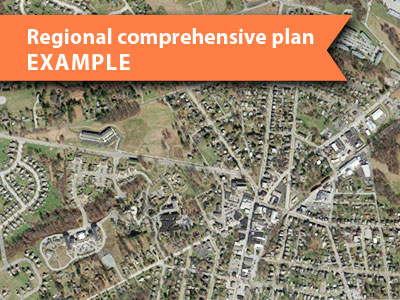
The 2012 Oxford Region Multi-municipal Comprehensive Plan (comprised of Oxford Borough, and East Nottingham, Elk, Lower Oxford, Upper Oxford and West Nottingham Townships) recognizes the need for workforce housing for occupations in every community, including agricultural operations. The housing plan recommends coordination between municipalities, agricultural employers, and non-profit housing providers to assist low-income workers to access housing that meets all local building quality and occupancy standards.


